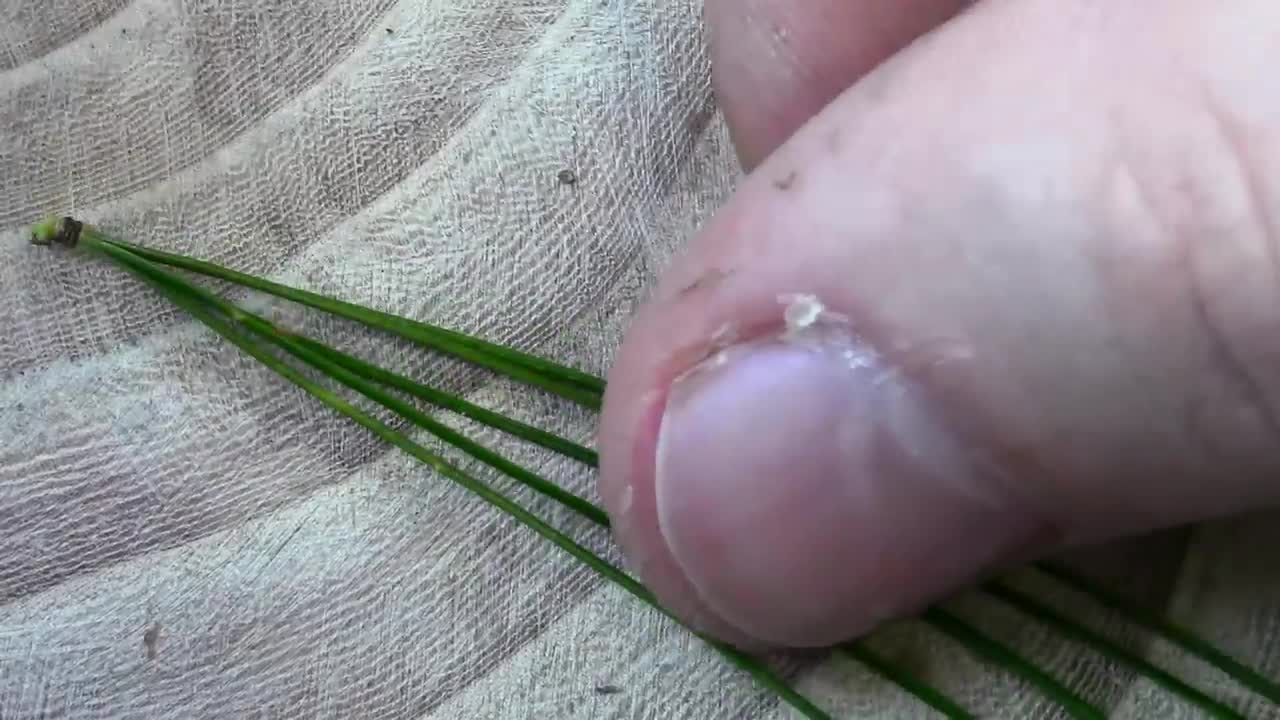Premium Only Content

What to Do if You’ve Had the COVID Vaccine (see description) - Wild Food Foraging - Pine Needle Tea
Showing you how to: identify, harvest, and prepare White Pine Needle Tea (original video - https://www.youtube.com/watch?v=PZSBKrXjJN0&t=339s)
Why?
Christiane Northrup, M.D. suggests this is a good idea as below...
What to Do if You’ve Had the COVID Vaccine
Many people have taken two or more doses of the experimental mRNA injections and are now concerned about symptoms they are experiencing and about their future health—rightly so! In addition to the adverse events being reported to VAERS (which is only a small percentage of the actual adverse events occurring), we are seeing thousands of reports from people who did not voluntarily take one of the shots but who are experiencing symptoms just from being near people who have been injected. What appears to be happening is that the spike protein is transmitting in the way contagions do— in bodily fluids, even in the air. This is unprecedented.
Some of the effects being reported by unvaccinated who have been around the recently vaccinated include migraines, micro-clots with bruises that suddenly appear anywhere on body, heavy and irregular menstrual cycles (even in post-menopausal women), miscarriages, fetal death, sterility, and even house pets dying shortly after the owner had the shot! There is an antidote called Suramin—a drug typically used to treat African Sleeping Sickness. Suramin inhibits blood coagulation (prevents blood clots) and appears to block the replication of RNA and DNA, which could counteract the mRNA shots. However, it is not commercially available by prescription in the U.S.
So, what can you do?
Simple Prescriptions for Supporting Your Health
Fortunately, there are some simple ways to combat the negative effects of the shots and of being around someone who is transmitting.
Drink pine needle tea. The number one way to support your body is to drink pine needle tea. The drug Suramin is derived from pine needles. But, when you drink fresh pine needle tea you reap all of the benefits of the whole needle, which is far superior to a single, pharmaceutically extracted compound due to its many health-enhancing properties and nutrients. In fact, drinking pine needle tea is an ancient custom that is known to enhance the immune system, act as an antitussive and expectorant for lung and sinus symptoms related to coughs, colds and flu, and act as an antiviral, antimicrobial, anti-inflammatory, antitumor and antimutagenic agent for many other conditions. This is due in part to the high amounts of vitamins A and C, a-pinene, proanthocyanidins and catechins (antioxidants), phenolic compounds, and plant sterols contained in the needles.
Pine needles also contain shikimic acid, which is a key ingredient in Tamiflu—the most widely used antiviral drug for treating seasonal flu, as well as more virulent strains such as swine and bird flus. Shikimic acid acts as an antiviral and prohibits the replication of viruses in the body. It has anticoagulant and antithrombotic properties, which help to prevent blood clots. Shikimic acid may also have antimalarial, anti-cancer and antibiotic properties. (In addition to pine needles, shikimic acid can be found in the herb star anise, which is used in Chinese Medicine to treat plagues and respiratory illnesses.)
It is easy to find recipes for pine needle tea. The most important thing to remember is not to boil the water. Heat it just below boiling. Use young needles. White pine is best. Avoid all yews, Norfolk Island pine and of course, Hemlock. If you are pregnant or nursing use caution when consuming pine needle tea...
-
 1:10:34
1:10:34
FYeye for your Info...
1 year agoAcapulco update
1481 -
 LIVE
LIVE
LFA TV
13 hours agoLFA TV ALL DAY STREAM - MONDAY 8/25/25
8,307 watching -
 LIVE
LIVE
Surviving The Survivor: #BestGuests in True Crime
23 minutes agoLIVE Court: Wendi Adelson Testifies Against Mom, Donna Adelson, in Dan Markel's Murder Trial
279 watching -
 LIVE
LIVE
JuicyJohns
54 minutes ago🟢#1 REBIRTH PLAYER 10.2+ KD🟢
178 watching -
 1:14:57
1:14:57
JULIE GREEN MINISTRIES
2 hours agoRUSSIA IS ABOUT TO RELEASE SOMETHING THAT WILL CRUSH THE ESTABLISHMENT
33.8K119 -
 LIVE
LIVE
GritsGG
54 minutes agoWin Streaking! Coloring Hair @11AM PST~ Most Wins 3435+ 🧠
48 watching -
 LIVE
LIVE
Welcome to the Rebellion Podcast
19 hours agoMonday Funday - WTTR Podcast Live 8/25
301 watching -
 1:21:24
1:21:24
Game On!
15 hours ago $0.02 earnedTom Brady And The Las Vegas Raiders ARE BACK! 2025 NFL Preview!
23.9K1 -
 LIVE
LIVE
The Bubba Army
2 days agoShould RaJa Jackson Be Arrested? - Bubba the Love Sponge® Show | 8/25/25
1,932 watching -
 LIVE
LIVE
FyrBorne
14 hours ago🔴Warzone M&K Sniping: Builds So Strong They Think I'm Hacking
260 watching